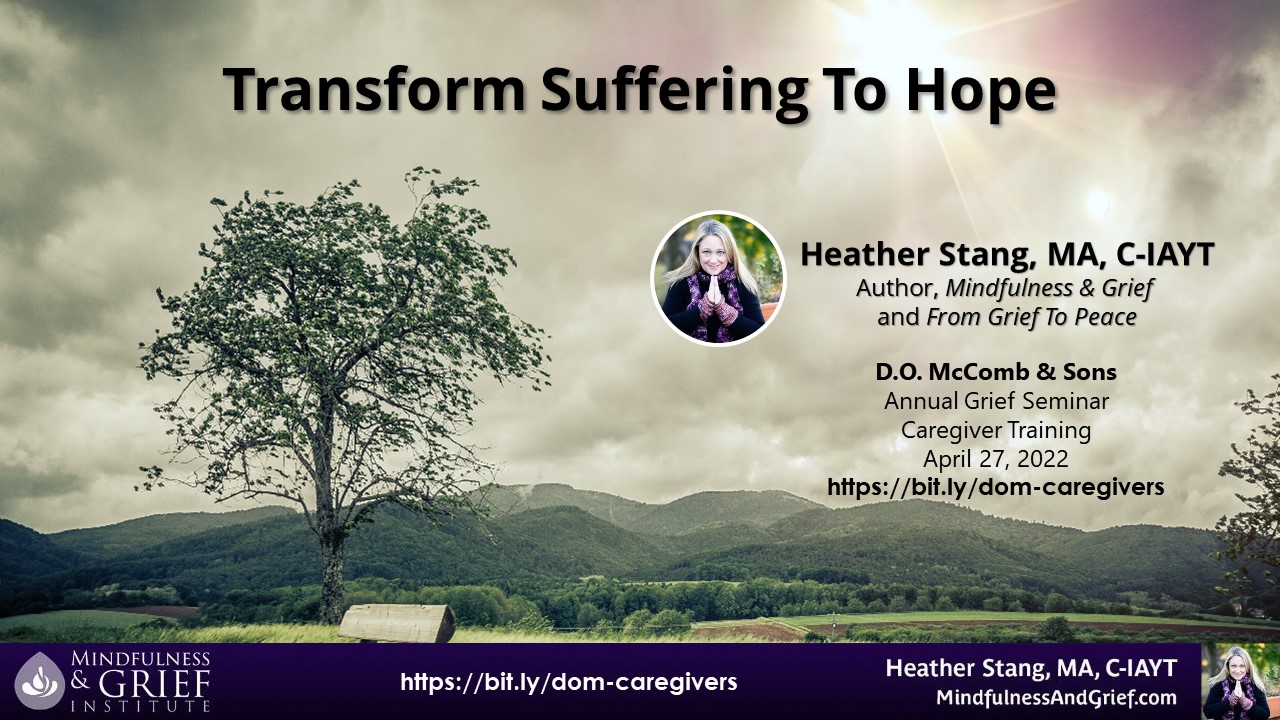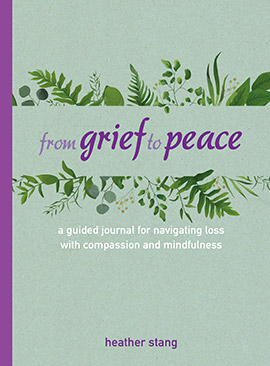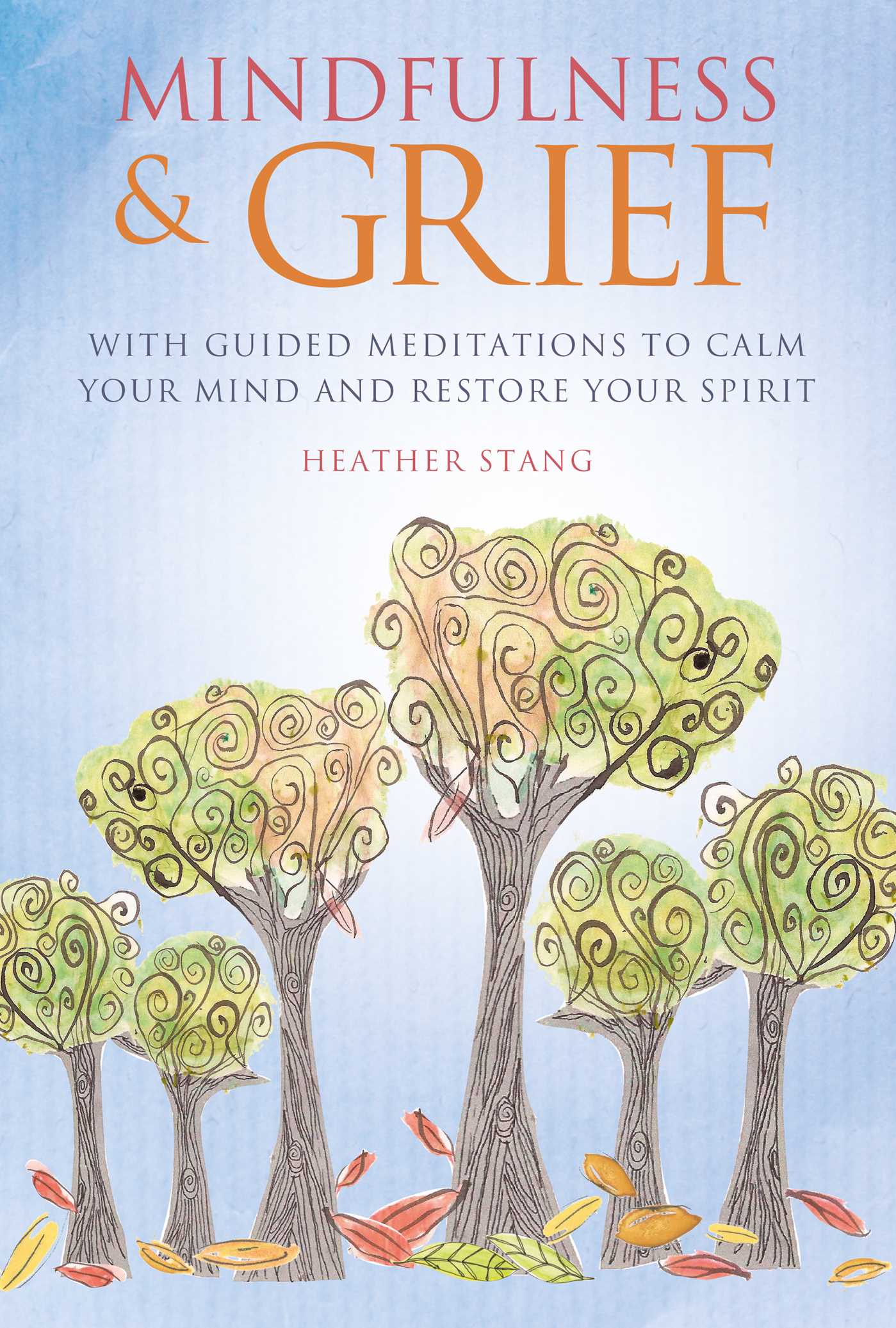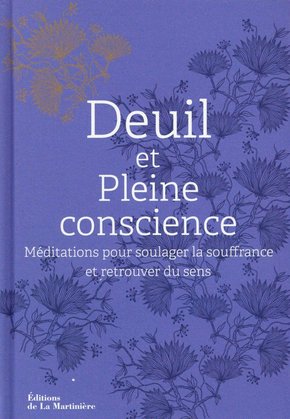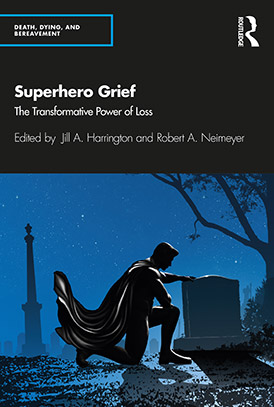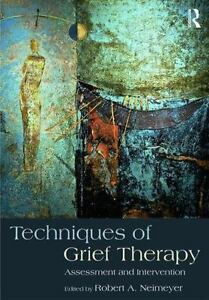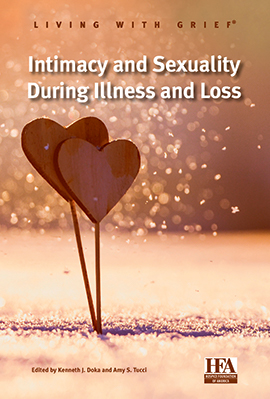Downloads & Guided Meditations
Books & Chapters By Heather
Waiting List: AwakenPro Membership for Volunteers & Professional Caregivers
Coming June 2022! AwakenPro is an online membership created for people working or volunteering to support people who are grieving. This is a special type of occupation, one that requires a great amount of self-compassion and self-care. This membership will include:
- Professional Self-Care Workshops
- Mindfulness & Grief Facilitation Training
- Access to the Awaken Roadmaps and Course Library
- Peer-To-Peer Virtual Meetups
- Membership in the Private AwakenPro Facebook Group
- One onboarding session with Heather
References
- American Counseling Association. (2011). Vicarious Trauma. Retrieved from https://www.counseling.org/docs/trauma-disaster/fact-sheet-9---vicarious-trauma.pdf.
- Benson, H. & Klipper, M. Z. (1992). The relaxation response. Harper Collins, New York.
- Benson, H. & Proctor, W. (2010). Relaxation revolution: The science and genetics of mind body healing. Simon and Schuster. New York.
- Brach, T. (2013). Radical acceptance: Embracing your life with the heart of the Buddha. Bantam, New York.
- Boss, P. (2021). The Myth of Closure: Ambiguous Loss in a Time of Pandemic and Change. W. W. Norton & Company.
- Cacciatore, J., & Flint, M. (2012). ATTEND: Toward a mindfulness-based bereavement care model. Death studies, 36(1), 61-82.
- Calhoun, L. G., & Tedeschi, R. G. (Eds.). (2014). Handbook of posttraumatic growth: Research and practice. Routledge.
- Doka, K. (2002). Disenfranchised grief: New directions, challenges, and strategies for practice. Research Press.
- Doka, K. J., & Martin, T. L. (2011). Grieving beyond gender: Understanding the ways men and women mourn. Routledge.
- Doka, K. J., & Martin, T. L. (2011). Grieving beyond gender: Understanding the ways men and women mourn. Routledge.
- Figley Institute. (2013). Basics of compassion fatigue. http://www.figleyinstitute.com/documents/Workbook_AMEDD_SanAntonio_2012July20_RevAugust2013.pdf
- Gamble, S. J., Pearlman, L. A., Lucca, A. M., & Allen, G. J. (1994, October). Vicarious traumatization and burnout among Connecticut psychologists: Empirical findings. In annual meeting of the Connecticut Psychological Association, Waterbury, CT.
- Harrington, J. A., & Neimeyer, R. A. (Eds.). (2020). Superhero Grief: The Transformative Power of Loss. Routledge.
- Hanson, R. (2009). Buddha’s Brain. New Harbinger, Oakland.
- Hanson, R. (2013). Hardwiring happiness: The new brain science of contentment, calm, and confidence. Harmony.
- Helbert, K. (2015). Yoga for Grief and Loss: Poses, Meditation, Devotion, Self-Reflection, Selfless Acts, Ritual. Singing Dragon.
- Kastenbaum, R. (1969). Death and bereavement in later life. In A. H. Kutscher (Ed.), Death and bereavement (pp. 28-54). Springfield, IL: Charles C. Thomas.
- Kubany, E. S., & Manke, F. P. (1995). Cognitive therapy for trauma-related guilt: Conceptual bases and treatment outlines. Cognitive and Behavioral Practice, 2(1), 27-61.
- Lee, S. A., Jobe, M. C., Mathis, A. A., & Gibbons, J. A. (2020). Incremental validity of coronaphobia: Coronavirus anxiety explains depression, generalized anxiety, and death anxiety. Journal of anxiety disorders, 74, 102268.
- Lee, S. A. (2020). Coronavirus Anxiety Scale: A brief mental health screener for COVID-19 related anxiety. Death studies, 44(7), 393-401.
- Levine, S. (2005). Unattended sorrow: Recovering from loss and reviving the heart. Rodale.
- Mathieu, F. (2007). Running on empty: Compassion fatigue in health professionals. Rehab & Community Care Medicine, 4, 1-7. https://www.compassionfatigue.org/pages/RunningOnEmpty.pdf
- McGonigal, K. (2016). The upside of stress: Why stress is good for you, and how to get good at it. Avery.
- McGonigal, K. (2016). The science of compassion: A modern approach for cultivating empathy, love, and connection. Sounds True.
- Neff, K. (2011). Self-Compassion: The proven power of being kind to yourself. William Morrow: NY, NY.
- Neimeyer, R. A. (Ed.). (2015). Techniques of grief therapy: Assessment and intervention. Routledge.
- Neimeyer, Robert A., Holly G. Prigerson, and Betty Davies. "Mourning and meaning." American Behavioral Scientist 46.2 (2002): 235-251.
- Neimeyer, R. A. (2001). Meaning reconstruction & the experience of loss. American Psychological Association.
- Shapiro, S. L., & Carlson, L. E. (2009). The art and science of mindfulness: Integrating mindfulness into psychology and the helping professions. American Psychological Association.
- Shear, M. K. (2015). Complicated grief. New England Journal of Medicine, 372(2), 153-160.
- Stang, H. (2018). Mindfulness & grief: With guided meditations to calm your mind & restore your spirit. CICO Books: London.
- Stang, H. (2021). From grief to peace. CICO Books: London.
- Stroebe, M., & Schut, H. (2010). The dual process model of coping with bereavement: A decade on. OMEGA-Journal of Death and Dying, 61(4), 273-289.
- Teater, M., & Ludgate, J. (2014). Overcoming compassion fatigue: A practical resilience workbook. PESI Publishing & Media.
- Treleaven, D. (2018). Trauma-sensitive mindfulness. W.W. Norton & Co.
- Worden, J. W. (2018). Grief counseling and grief therapy: A handbook for the mental health practitioner. Springer Publishing Company.
- Vicarious Trauma. (2011). Retrieved from American Counseling Association https://www.counseling.org/docs/trauma-disaster/fact-sheet-9---vicarious-trauma.pdf.
- Kabat‐Zinn, J. (2003). Mindfulness‐based interventions in context: past, present, and future. Clinical psychology: Science and practice, 10(2), 144-156.
